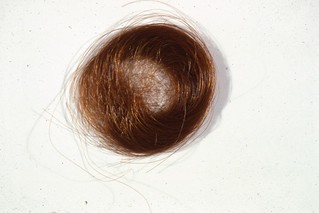The stores are full of red hearts for Valentine's Day. It is a day for love, romantic dinners, gifts, champagne, and engagements. It is also a day for some people to feel even lonelier. It's even a day for breakups.
Not to be totally unromantic but there are plenty of love poems already, and they're tough to write without sounding corny or like a young hormonal teen poet.
This February we are asking for poems about breakups, which is also a poetic tradition.
I was looking in a big anthology for other kinds of love poems. I found in the older poets John Clare’s "The Secret" where that love never even happens. That may be the worst kind of love poem but that's one way to avoid a breakup. "I loved thee, though I told thee not," says John.
I found Edward Thomas' poem "Go Now" about a woman parting ways with the male speaker and the effect that her simply saying "Go now" had on him.
Like the touch of rain she was
On a man’s flesh and hair and eyes
When the joy of walking thus
Has taken him by surprise:
With the love of the storm he burns,
He sings, he laughs, well I know how,
But forgets when he returns
As I shall not forget her ‘Go now’.
Those two words shut a door
Between me and the blessed rain
That was never shut before
And will not open again.
I quite like this poem by Scottish poet Vicki Feaver titled "Coat" which uses that coat as the metaphor for the relationship. That's a nice mini-prompt.
Coat
Sometimes I have wanted
to throw you off
like a heavy coat.
Sometimes I have said
you would not let me
breathe or move.
But now that I am free
to choose light clothes
or none at all
I feel the cold
and all the time I think
how warm it used to be.
The poem I landed on for our model this month is by Stevie Smith. She was born Florence Margaret Smith in Hull, Yorkshire in 1902. She is somewhat deceptive in her sometimes nursery-rhyme-like cadences. (She also had whimsical drawings with which she illustrated poems.) But she is a sophisticated poet, whose poems often dealt with suffering and mortality. She also has a dark sense of humor. Her most famous poem is “Not Waving But Drowning.” Give it a read too.
Our model poem is her "Pad Pad." Think of "pad" as walking with or as if with padded feet, like a cat or tiger.
The short poem's opening stanza"
I always remember your beautiful flowers
And the beautiful kimono you wore
When you sat on the couch
With that tigerish crouch
And told me you loved me no more...
Of course, breakups are not relegated only to lovers. Families break up. Companies break up. The choice is yours.
One more caveat to your submission: Is it a coincidence that there are so many love sonnets of 14 lines and that Valentin's Day is on the 14th? I think it's synchronicity rather than coincidence. Your poem must be 14 lines whether a sonnet or not.We have been down that 14-step road before here, so if you want some sonnety ideas take a look at our bed sonnets, phone sonnets, sonnenizios inspired by Kim Addonizio and some more traditional sonnet forms.
The deadline for submissions is February 28, 2023.
Visit our website at poetsonline.org










